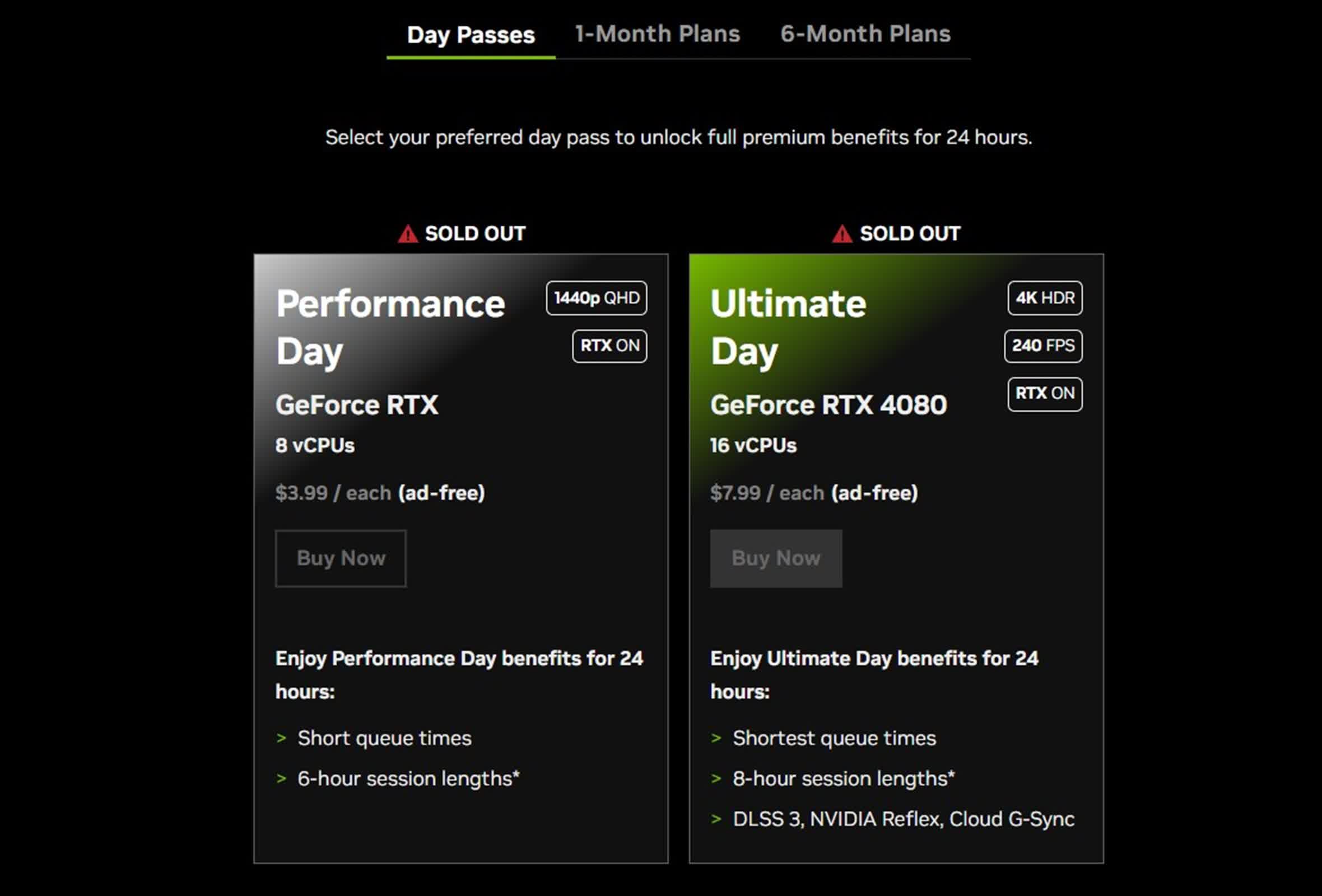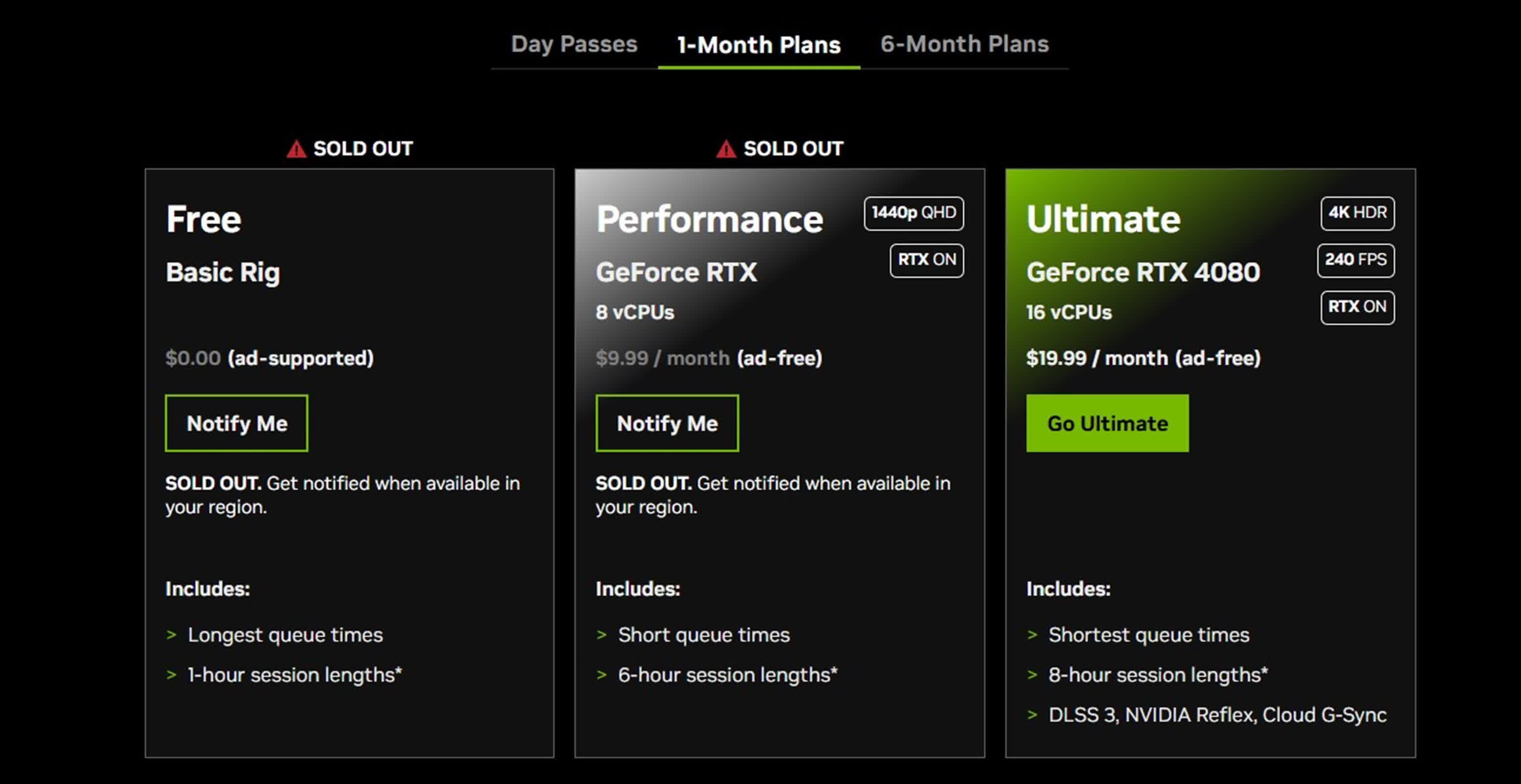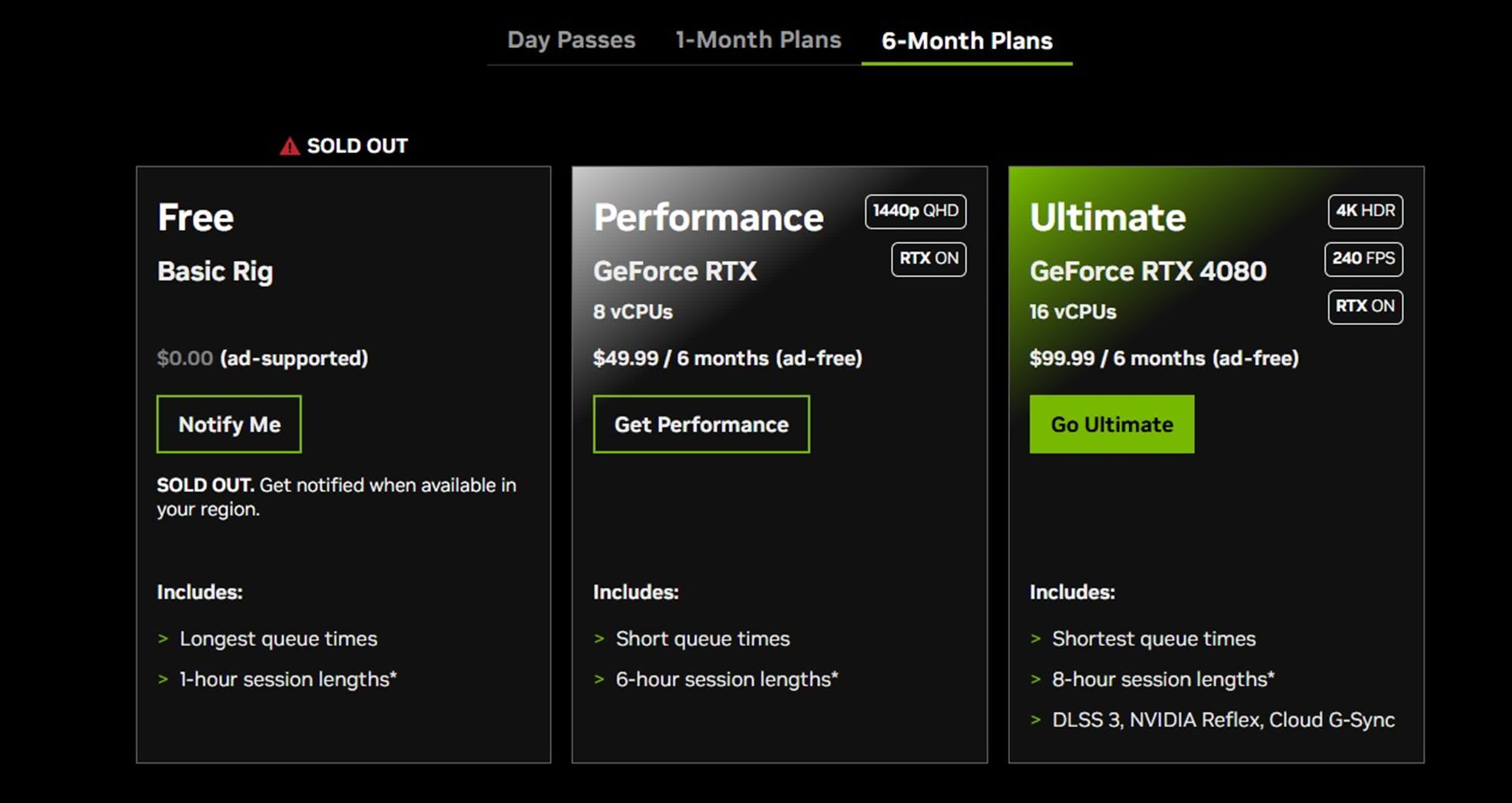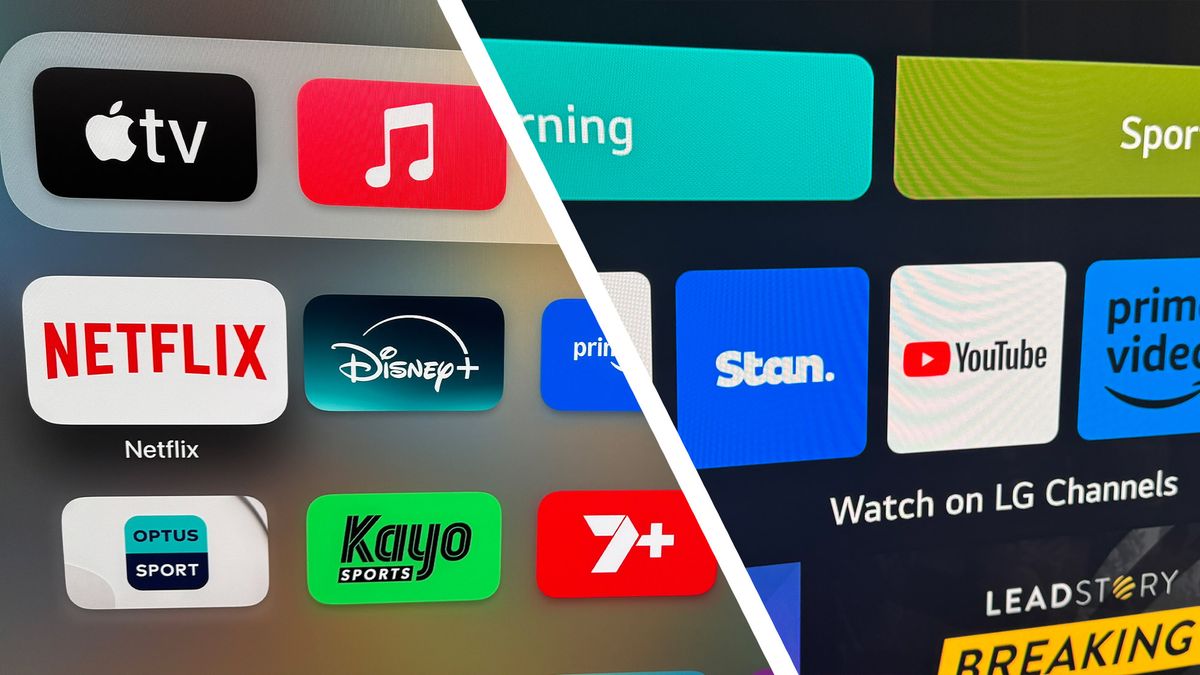Serving tech enthusiasts for over 25 years.
TechSpot means tech analysis and advice you can trust.
In context: Nvidia's GeForce Now cloud gaming service is facing an unprecedented surge in demand, leading to a shortage of available subscription tiers. This development has left many potential customers unable to access the service and has sparked discussions about the exact cause of the platform's capacity issues.
Currently, five out of eight subscription tiers for GeForce Now are unavailable, including all Day Passes, Free, and Performance tiers of the 1-month plan, as well as the Free tier of the 6-month plan.
This shortage appears to be a global issue, affecting users across multiple regions. The unavailability primarily impacts new users, particularly those seeking free-tier access. Nvidia told the German publication ComputerBase that it is restricting supply to ensure existing users continue to enjoy a seamless experience, prioritizing premium subscribers over new free-tier customers.
GeForce Now typically offers three main subscription levels: Free (Basic Rig with Ads, FHD resolution), Premium (GeForce RTX, 1440p resolution), and Ultimate (GeForce RTX 4080, 4K HDR, 240 FPS, DLSS 3). These plans are available in various durations, including Day Passes (24-hour access), one-month, and six-month memberships.
In late 2024, Nvidia announced a change to its GeForce Now cloud gaming service, implementing a monthly playtime cap of 100 hours for both Performance and Ultimate subscription tiers. This limit translates to approximately 3.3 hours of daily gameplay. Users who exceed this threshold will have the option to purchase additional gaming time. For Ultimate tier subscribers, 15 extra hours will cost $5.99, while Performance tier members can acquire the same amount of additional playtime for $2.99.
While Nvidia attributes the current unavailability to high subscriber demand, the exact cause remains unclear. Some speculate that the servers may be at full capacity, unable to accommodate the influx of new users. However, the uniform nature of the outage across different regions has led to alternative theories. One possibility is that Nvidia might be upgrading its underlying hardware while maintaining existing services in parallel. Another theory involves a potential restructuring of the service offerings, possibly including the implementation of a new GeForce RTX 50 subscription with DLSS 4.
Some users on social media platforms have linked the surge in demand to the release of Marvel Rivals in December, though this remains unconfirmed. Nvidia did not provide specific details about the current bottlenecks in server resources.
This is not the first time GeForce Now has faced such challenges. Similar issues arose in 2020, suggesting that this may be a temporary setback. Industry observers expect Nvidia to resolve the problem in due course, possibly by upgrading existing infrastructure to accommodate more users.












 English (US) ·
English (US) ·